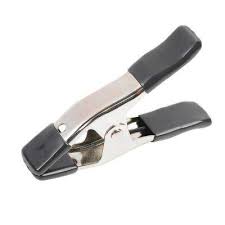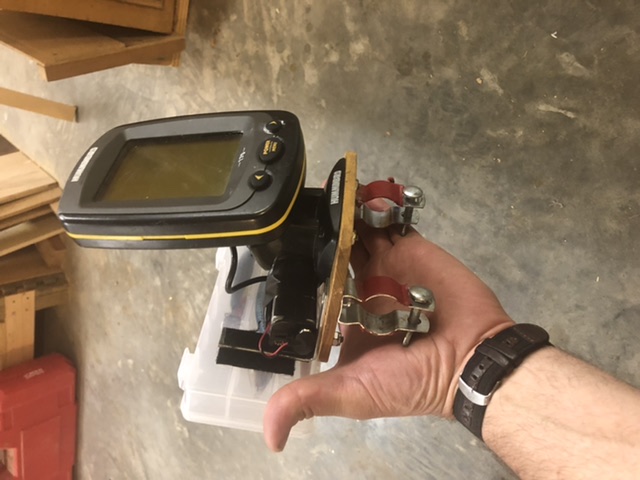|
06/01/2020 09:20PM |
|
06/02/2020 12:57PM |
If you don't have electronics, then definitely dig into the maps and mark a series of spots that you want to try. Create a route. Work through those spots methodically, don't stay in a non-productive location for more than 30 minutes. And always troll between spots. Great search tactic. When you get a hit trolling, hey you have a new spot to add to your route.
|
06/01/2020 09:36PM |
And yes, benharty81, it sounds like you understand the setup I was describing. Create foam puck with hollow space for ducer, adhere puck to boat floor, add water to hollow and squeeze ducer into the hollow.
Also glue might not be the best option. Maybe an all weather double sided tape would work as well?
|
06/02/2020 11:34AM |
cyclones30: "If you think you need one, go ahead. But I don't think I'd agree with saying "most people take one" on a trip. I know a ton of people that don't and do just fine. "
This.
If it's your first trip I don't think a sonar unit is essential UNLESS you are convinced you need it and are committed to using it.
Print a bathymetric map off the DNR Lake Finder (even though they're not totally accurate) and try to figure things out on your own. Sometimes you can use satellite imagery (Google Earth) to look for reefs, drop-offs, inside turns, etc that might not be indicated on the bathymetric maps. Depends on the quality of the imagery, water clarity, etc.
Also your outfitter can probably suggest some specific locations to target.
|
06/01/2020 07:31PM |
I think your best bet is going to be a "flasher bag" type of thing that's usually thought of for ice fishing. For example, search the Garmin Striker 4 portable bundle -- that comes in a kit with the bag and mount. The bag itself has a flat bottom so it can just sit in your canoe between your legs by your feet. I know that Lowrance and Humminbird make bags and bundles like that as well, but be careful not to buy the bundle that comes with the ice fishing transducer.
Also do some searching here on how to mount the transducer for "through-hull" operation in a canoe. This avoids mounting to the boat with brackets, etc. You could also do a suction-cup arm mount for the transducer, but I find this to be cheaper, less "in the way" and fully functional. Bear with me, this will get a little long, but it's the best way I've found:
How to create a hockey puck-shaped doohickey out of several layers of closed cell foam that have been glued together.
1. Cut a bunch several pieces of closed-cell foam (if you have an unwanted PFD these are perfect donors for the foam) into the same sized circle and stack them up.
2. Then set the ducer on the top of the stack and trace its outline. Now take an exacto knife and cut out the shape of the ducer out of each piece, creating a little hollow-ed out nook for the ducer.
3. Next, glue the separate pieces of foam into a single "puck" -- make it at least 1/4 to 1/2 as tall as the transducer itself.
4. Now's the tricky part -- you need to find an easily removable, safe, water-proof sealant/adhesive/putty that you can use to affix your puck to the floor at the stern of the rental canoe. It needs to be able to hold some water in the little "hollow" for the ducer. It doesn't need to be perfect, you can always splash a bit more in later, but it does need to be able to hold water reasonably well. It also needs to be able to be removed without damaging the rental.
5. Once the hollow is filled with water, you just squeeze the transducer into the hollow in the foam and you're set. Your ducer is now immersed in water, sitting flat, and will securely stay in that position.
|
06/01/2020 10:05PM |
|
06/01/2020 06:26PM |
I am new to this site and have checked a few posts about fish finders, but a lot of them seem to revolve around personal canoes that can be modified.
I am going to be going through an outfitter for my FIRST trip to the BWCA and will be using ALL of their equipment. That being said, I am reading that most people bring a depth finder for electronics with them.
Is there a depth finder that would work that doesn't need to be mounted and I would have to worry about sending overboard?
Also - if anyone has recommendations on any other gear of my own that I should get before I leave, it would be greatly appreciated.
Like I said, first time for me so I know nothing. I hope I don't get myself hurt (or the girlfriend).
Thanks everyone!
|
06/01/2020 09:09PM |
|
06/01/2020 09:12PM |
|
06/02/2020 11:47AM |
thistlekicker: "cyclones30: "If you think you need one, go ahead. But I don't think I'd agree with saying "most people take one" on a trip. I know a ton of people that don't and do just fine. "
This.
If it's your first trip I don't think a sonar unit is essential UNLESS you are convinced you need it and are committed to using it.
Print a bathymetric map off the DNR Lake Finder (even though they're not totally accurate) and try to figure things out on your own. Sometimes you can use satellite imagery (Google Earth) to look for reefs, drop-offs, inside turns, etc that might not be indicated on the bathymetric maps. Depends on the quality of the imagery, water clarity, etc.
Also your outfitter can probably suggest some specific locations to target.
"
Or buy the Navionics app for your phone.
|
06/01/2020 09:28PM |
benharty81: "WABLES: Where do you put the ducer? "I glue mine in with silicone and shoot through the hull, but I’ve also used a suction cup mount on the side of the canoe.
|
06/02/2020 08:00PM |
I am not even sure i will get one - but i do want to fish while i'm there; thats our purpose for going. And getting away from our kids. I may just get the maps and guess on depths. I really seldom use my finder on my boat but then again its a dinky boat with a Lawrance Hook 4.
I do have Navionics which i use alot with my boat. A question though, how do you keep that phone charged while you're out? A really big power bank?
i'll definitely check with the outfitter and see what they think.
Thanks again everyone; i have more questions but i'll keep searching for previous posts before i ask.
|
06/03/2020 07:41AM |



I mount a unit on a clamp like the one pictured and run it on 8 AA batteries. Suction cup for the ducer. (can't shoot thru hull on a royalex boat) For 80 bucks or so and a half hour in modifications you are good to go.
I'm tellin' ya folks, this clamp idea is terrific.
|
06/02/2020 11:01AM |
|
06/02/2020 11:06AM |
|
06/02/2020 09:51PM |
|
06/01/2020 07:55PM |
